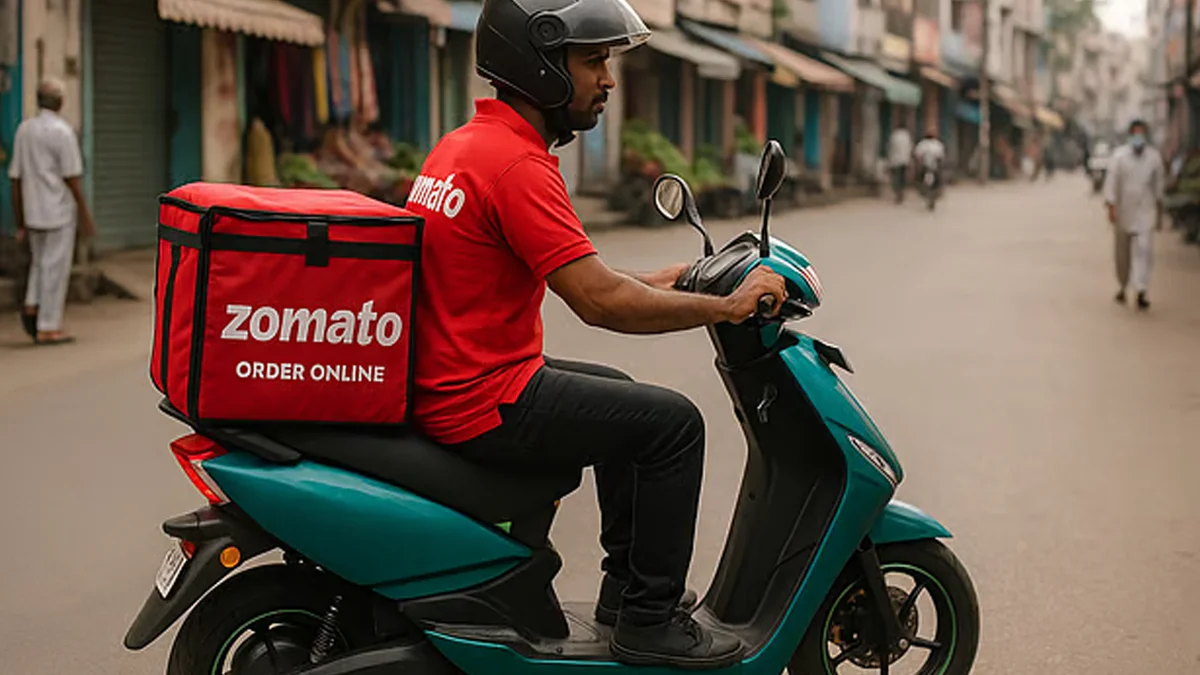Necessary Always Active
Necessary cookies are required to enable the basic features of this site, such as providing secure log-in or adjusting your consent preferences. These cookies do not store any personally identifiable data.
|
||||||
|
||||||
|
||||||
|

Food delivery giant Zomato has taken a big step towards sustainability with the launch of its EV fleet in Delhi, Financial Express reported. The company announced that it will now offer an electric vehicle rental option in Delhi for its delivery partners, aiming to cut down carbon emissions and promote greener transportation in the national capital.
This initiative aligns with Zomato’s broader goals to become environmentally responsible while offering practical solutions to delivery workers. The rented EVs are expected to reduce fuel costs for riders and support the company’s mission to offer eco-friendly delivery options.
Earlier, Eternal (previously known as Zomato) had outlined its goal of transitioning to a 100% electric vehicle fleet by 2030 and achieving net-zero emissions across its food delivery value chain by 2033. At present, about 10% of Zomato’s delivery workforce operates using electric vehicles.
The food delivery startup also highlighted the environmental impact of this transition. The current EV adoption by its partners has helped prevent nearly 4,900 tonnes of carbon dioxide equivalent emissions, which the company says is similar to planting around 220,000 trees in FY25.
The new Zomato EV rental service allows delivery partners to rent electric scooters at affordable daily or weekly rates. Zomato is working with local EV rental firms to supply the vehicles, and each unit comes with access to charging points across the city. This means delivery riders no longer have to rely on personal petrol vehicles, which often come with high maintenance and fuel costs.
Zomato mentioned that the fleet will initially operate across key locations in Delhi, with plans to expand to other major cities soon. The EVs are designed to be lightweight, durable, and easy to navigate through urban traffic, ideal for fast-paced food deliveries.
Ajay Chaudhary, IPS, Special Commissioner of Police, Traffic Management Division (Zone II), Delhi Police, who inaugurated the fleet, said, “Among the various pollution mitigation steps taken in Delhi, it is imperative that industries take the extra measures to adopt sustainability. It is heartening to see Zomato take this step to provide delivery partners with access to efficient and affordable EVs on rent.”
With this rollout, Zomato is pushing forward its green transport vision. The company previously committed to making 100% of its delivery fleet electric by 2030. This launch marks one of the early steps in that long-term strategy.
The new electric fleet is not only expected to cut emissions but also reduce noise pollution in busy areas. As customers become more environmentally conscious, this shift could help Zomato build a stronger connection with users who prefer sustainable services.
Delhi’s government has actively promoted electric mobility through subsidies, tax exemptions, and support for charging infrastructure. Zomato’s initiative complements the capital’s efforts to build a cleaner and greener transport system. As electric vehicle rental services in Delhi become more common, other companies might follow Zomato’s lead.
Moreover, this move could give a boost to the local EV ecosystem, creating more demand for vehicle rentals, charging stations, and EV maintenance jobs.
While this is just the beginning, the startups’ focus on sustainable growth is clear. Zomato is expected to monitor the Delhi pilot closely before expanding the EV fleet to other metro cities. Success in Delhi could pave the way for a nationwide shift in food delivery logistics.
With this step, Zomato is not only aiming for operational efficiency but also positioning itself as a leader in responsible business practices. As urban pollution becomes a bigger issue, efforts like these could play a crucial role in shaping cleaner cities.